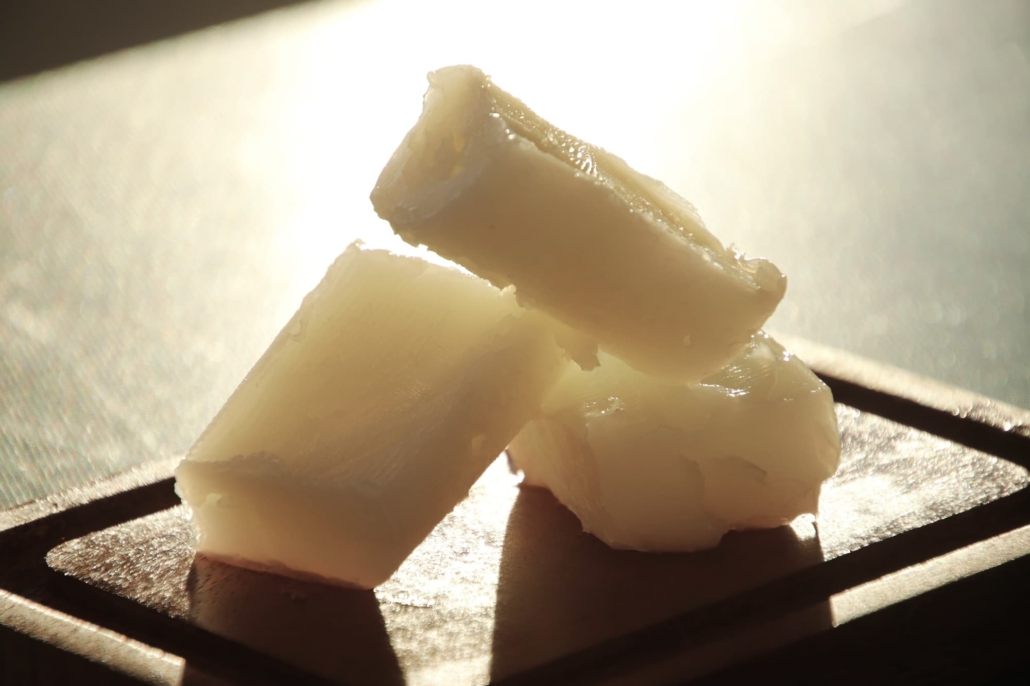Melt&Marble achieves demo-scale fermentation for designer fats
Swedish food tech company successfully scales up precision fermentation process to over 10,000 litres, maintaining target bioprocess performance and paving the way for application pilots.

Melt&Marble designer fat
Melt&Marble, a Swedish food technology company specialising in precision-fermented designer fats, has announced a significant breakthrough in their production capabilities. The firm has successfully scaled up its fermentation process to the tens of thousands of litres range, marking a crucial step towards commercial-scale production of their innovative fat alternatives.
The recent achievement builds upon Melt&Marble’s previous success in scaling their fermentation process to cubic metre bioreactor scale earlier this year. The company’s scientific team has managed to maintain comparable strain and bioprocess performance at this larger scale, demonstrating the robustness and scalability of their process.
Anastasia Krivoruchko, CEO of Melt&Marble, commented on the achievement: “Scale-up of fermentation processes can be tricky, and we’re extremely proud of what our scientific team has managed to achieve in such a short amount of time.”
The company’s Chief Scientific Officer, Florian David, added: “The scale-up is a key milestone which proves that our process can create precision-fermented fats in much larger quantities than we had done previously. The success of this was driven by the collaboration of both internal and external teams to ensure that our process is translatable to a larger scale.”

Florian David, Chief Scientific Officer at Melt&Marble, Anastasia Krivoruchko, CEO, and Thomas Cresswell, Chief Business Officer.
Precision fermentation technology
Melt&Marble’s technology centres on precision fermentation, a process that involves engineering the metabolism of yeast to produce designer fats with precisely controlled composition and properties. This approach allows the company to create fats that can potentially replicate animal-derived fats for use in alternative meat products, as well as develop novel fats for use in personal care products.
The company’s process utilises simple feedstocks to produce these designer fats, avoiding reliance on unsustainable animal and plant sources. This method potentially offers improved sustainability, functionality, and health profiles compared to traditional fat sources.
Applications and future developments
With the successful scale-up, Melt&Marble is now poised to expand its application testing across various culinary contexts. This will allow the company to optimise the use of their fats in different food and personal care products.
Thomas Cresswell, Chief Business Officer at Melt&Marble, highlighted the commercial implications of this development: “This milestone is a pivotal step toward our goal of launching Melt&Marble’s fats commercially. It enables us to accelerate the pilot projects we’ve already initiated with some of our partners, bringing innovative, sustainable fat solutions to market and aligning with global demand for better alternatives sooner rather than later.”
The company’s initial products are designed to deliver improved functionality and sustainability profiles for the alternative protein and personal care sectors. However, Melt&Marble envisions broader applications for their designer fats, including potential use in cheese, butter, confectionery, and bakery products.
Funding
The successful scale-up follows Melt&Marble’s recent acquisition of €2.76 million in EU grants earlier this year. This funding, coupled with the demonstration of scalability, positions the company strongly for its next phase of development.
As the company moves forward, it aims to further refine its designer fat products and bring these sustainable alternatives to market in the coming years. The large quantities of fat produced from the demo run will facilitate application pilots and joint development agreements, moving Melt&Marble closer to commercialisation.
Implications for food science
For food scientists, Melt&Marble’s achievement represents a significant step forward in the field of precision fermentation for fat production. The successful scale-up demonstrates the potential for this technology to be applied at commercially relevant volumes, potentially offering new tools for food formulation and product development.
The ability to create designer fats with specific properties could provide food scientists with greater control over the texture, mouthfeel, and nutritional profiles of food products, particularly in the rapidly growing alternative protein sector. Additionally, the sustainability aspects of this technology align with increasing industry focus on reducing environmental impact and improving resource efficiency in food production.


